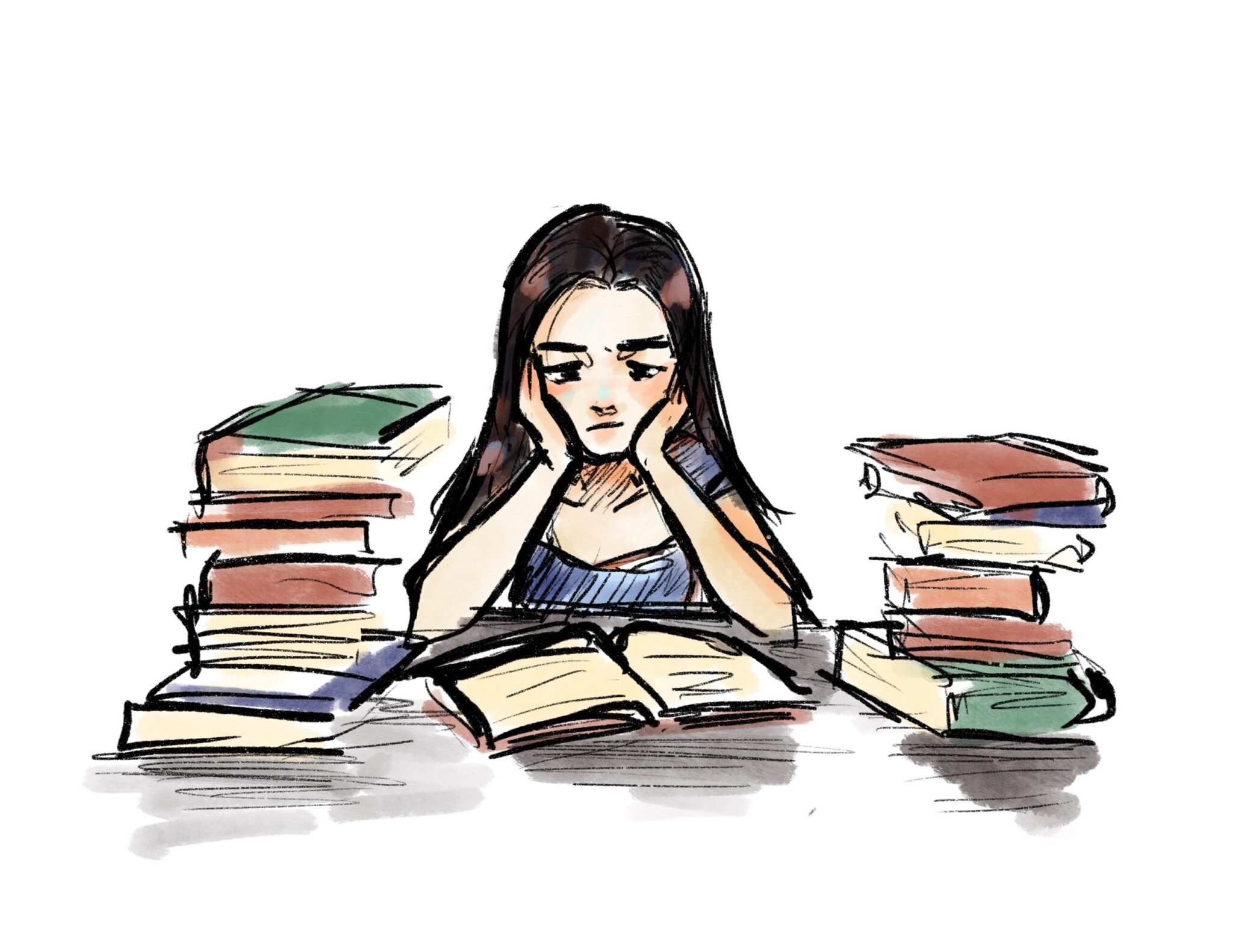
Ariane de Gennaro
My mother always tells the story of how I started to read. My mother, sister and I would snuggle up in the same bed, turn on the bedside lamp and read our bedtime story. My sister would examine the illustrations as my mother read out loud. As we started getting sleepier, she would start skipping over sentences to get us to fall asleep faster. Apparently, after a while, I started to realize what she was doing and intervened, pleading, “Mommy read all of it please!”
I grew up loving to read. Books were always my escape from reality. I looked forward to listening to the story of the night, even if it was the eighth time we’ve read that book together. Once I was able to actually read on my own, I felt as if my world had widened. I was introduced to some of my dearest new friends: the Cat in the Hat, the Lorax, Matilda, Ramona and Beezus. I’m not sure if I anticipated my visits to Willy Wonka’s Chocolate Factory, Narnia, or Hogwarts more. The more I read, the more I was eager to explore. The illustrations of “The Very Hungry Caterpillar” slowly left its place to my imagination of Jo March. If I got into an argument with my family, I read. If the traffic during my one-hour commute to school got worse, I read. If I woke up early and had nothing to do, I read. As my school workload increased, I started to read to procrastinate doing my homework. I resorted to books for comfort. As geeky as it sounds, with time, books became my best friend.
Nonetheless, as school got more and more serious, I had less and less time to read. It even came to a point that I only read what was assigned in class. Reading for fun became a summertime luxury. As the weight of the school year lifted off my shoulders, I would finally have time to retreat into books. The three month period filled with the comfort of leisurely reading would expand my perspective, allowing me to be in more than one place at a time, in more than one frame of mind, daintily jumping across centuries or personalities as I wished. I did miss reading during the school year, but had great trouble trying to balance what I read for pleasure and what I read for school. Ever since I started college, I’ve been doing my best to find classes with readings I’m actually interested in — in light of my new goal, I even took a course called “Music and Jane Austen” last semester. In doing so, I realized assigned readings can also provide me immense satisfaction. The past year has probably been the year I read the most, despite rarely ever reading outside the syllabus. I’m happy I was able to remember the joy of reading.
What excites me most about picking up a new title is that I never know where it will take me, to whom I will be introduced, or what I will be made to rethink. I love how reading helps me widen my horizon, opening brand new doors, sparking unfamiliar, sometimes even uncomfortable, ideas. Reading “The Narratives of Frederick Douglass” for my American literature class reminded me of “The Underground Railroad” from high school. Studying Whitehead’s source of inspiration helped me put his appalling narrative into perspective. Other times, the connections I make aren’t between two books, but relating to my own reality. Chuck Palahniuk, for instance, had me contemplating my father’s insomnia — are my workaholic parents any different from the narrator in “Fight Club?” Virginia Woolf, on the other hand, forced me to reconsider my perception of time — what do I look forward to? What is my lighthouse? To delve further into such questions, this past summer I read Cunningham’s “The Hours.” Having studied Woolf back in high school, I loved reading about her life instead of her words. I was forced into my own existential crisis, both trying to understand the relation between the three plots in the novel and also doing my best to determine my own meaning of life.
I love reading as much as I do because it gets me out of my own head. Questions with no obvious answers motivate me. I take great pleasure in worrying about Connell and Marianne’s relationship instead of my own. I get excited when I see how others were able to write about feelings I hadn’t been able to put into words myself. After “Normal People,” I also read the recent social media classic, “It Ends With Us,” this time struck by emotions I personally hadn’t felt before; it took me a few days and a whole new book to finally get over the powerful emotion conveyed through Hoover’s beautifully crafted description of an abusive cycle. I embrace the power of words as my existing emotions are heightened and I’m introduced to brand new ones.
I love how reading helps me widen my horizon, opening brand new doors, sparking unfamiliar, sometimes even uncomfortable, ideas. As I read, I let myself get lost in the protagonist’s mind. I remain exhilarated by the prospect of traveling to an alternate reality in which I can control time. I also notice how time always slips away from me when I’ve fallen into the rabbit hole of reading. I like losing track of time; I enjoy the sense of freedom books provide.
What excites me most about picking up a new title is that I never know where it will take me, to whom I will be introduced, or what I will be made to rethink, which is probably why I so often look forward to escaping my own reality.







